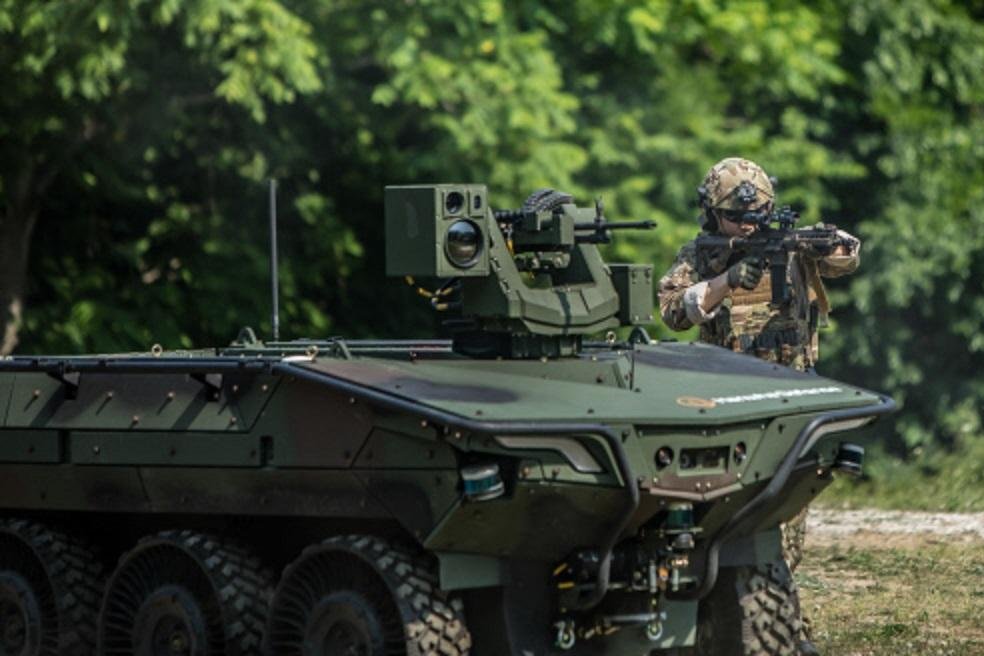An unmanned ground vehicle, known as Arion-SMET, is currently in operation in South Korea. Developed by Hanwha Aerospace, a Korean defense company, this autonomous vehicle has garnered attention from the U.S. Department of Defense. In preparation for potential use by the U.S. Marines, the Department of Defense has agreed to test Hanwha’s unmanned vehicle on U.S. soil. Hanwha Aerospace recently announced that the Arion-SMET will undergo a three-week testing period at Marine training grounds in Hawaii in December.
The Arion-SMET, weighing 2 tons, was specifically designed to support infantry operations. It can carry weapons, evacuate the wounded, and provide close combat support. This ground vehicle boasts autonomous off-road navigation capabilities and a homing device to ensure operational effectiveness even in the absence of communication. It can either be remotely controlled or operate autonomously for reconnaissance and surveillance missions.
This agreement between Hanwha Aerospace and the U.S. military is part of the Foreign Comparative Testing program. The program aims to identify and evaluate high-quality products and technologies from allied nations that meet the defense requirements of the United States. Since its establishment in 1980, the program has facilitated the procurement of foreign-sourced products by the U.S. military, with an expenditure exceeding $5 billion.
This collaboration with the U.S. Department of Defense marks a milestone for Hanwha Aerospace, as it will be the first time that an unmanned weapons system developed by a Korean company undergoes testing in the United States with the potential for procurement contracts. Executive Vice President Seo Young-woo of Hanwha expressed his confidence in the Arion-SMET, stating that the test on American soil is a testament to the U.S.’s trust in Hanwha’s technological know-how.
Hanwha Aerospace has been dedicating significant resources to the development of unmanned military vehicles. This focus is particularly important for South Korea, which is facing population decline due to an extremely low fertility rate. According to Statistics Korea, the country’s fertility rate was only 0.7 during the second quarter of this year, making it the lowest in the world. The decline in population necessitates the advancement of unmanned technologies to compensate for potential labor shortages in the future.
In addition to the testing agreement with the U.S. military, Hanwha Aerospace will also be involved in the development of technologies related to unmanned aerial vehicle engines. The Seoul administration has chosen Hanwha Aerospace as the preferred negotiating party for this project, highlighting the company’s expertise in the field. Hanwha plans to collaborate with various partners to leverage cutting-edge technologies like 3D printing and heat-resistant coating.
Denial of responsibility! Vigour Times is an automatic aggregator of Global media. In each content, the hyperlink to the primary source is specified. All trademarks belong to their rightful owners, and all materials to their authors. For any complaint, please reach us at – [email protected]. We will take necessary action within 24 hours.



